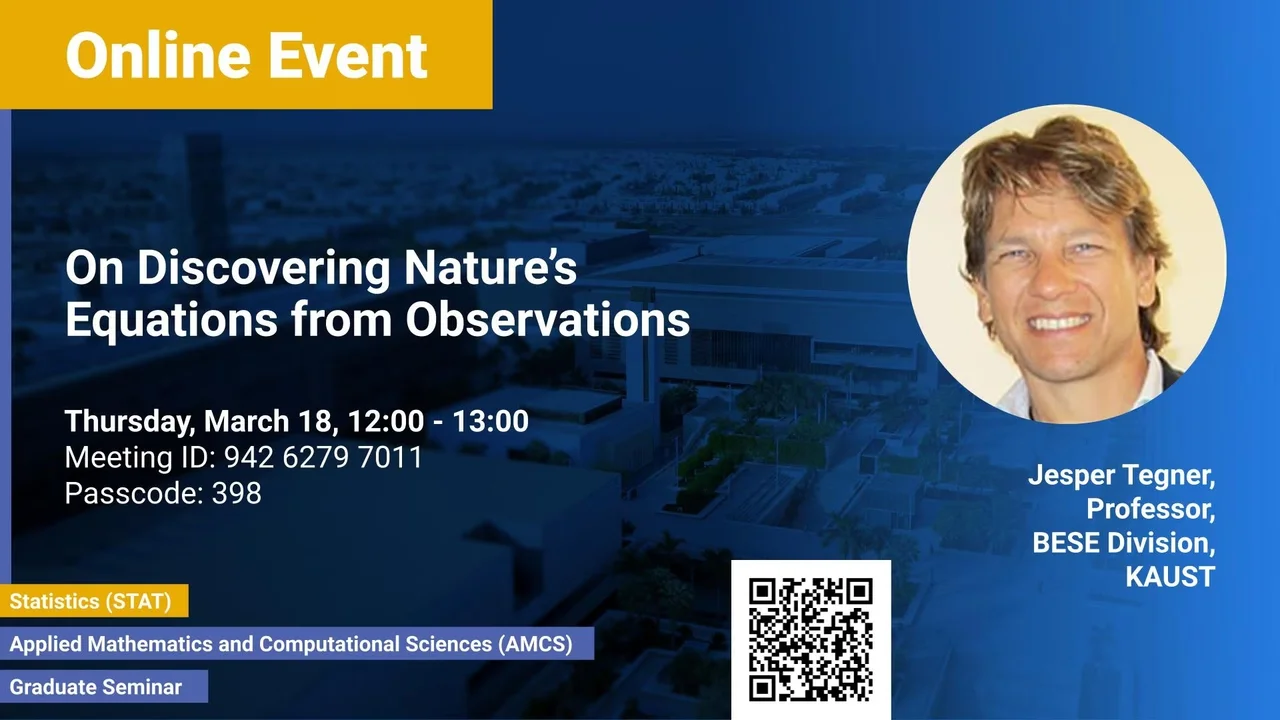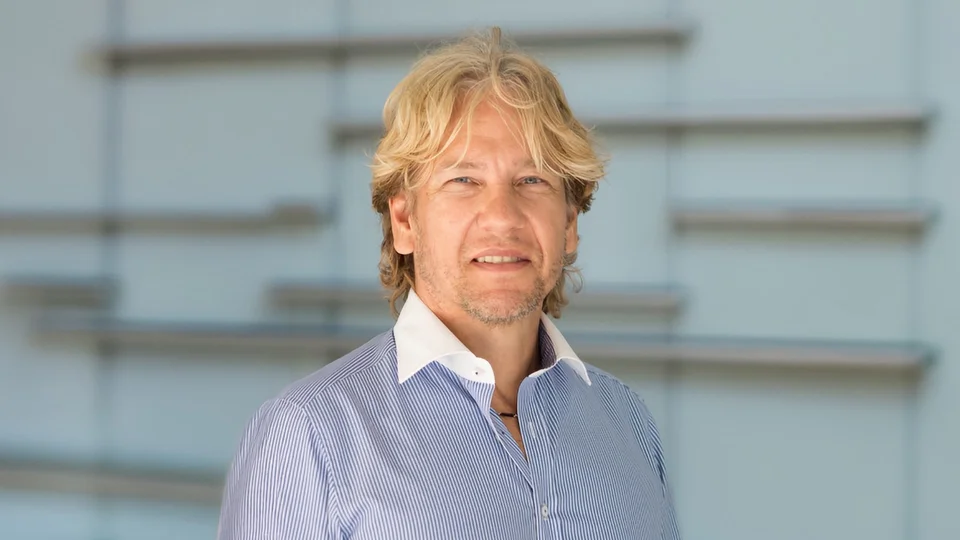
On Discovering Nature’s Equations from Observations
- Jesper Tegner, Professor, BESE Division, KAUST
KAUST
In essence, science is about discovering regularities in Nature. It turns out that such regularities (laws) are written in the language of mathematics. In many cases, such laws are formulated and refined from fundamental “first principles.” Yet, in phenomenological areas such as biology, we have an abundance of data but lack “first principles.” Machine learning and deep learning, in particular, are remarkably successful in classification and prediction tasks. However, such systems, when trained on data, do not, as a rule, provide compact mathematical laws or fundamental first principles. Here we ask how we can identify interpretable compact mathematical laws from complex data-sets when we don’t have access to first principles. I will give an overview of this problem and provide some vignettes of our ongoing work in attacking this problem.
Overview
Abstract
In essence, science is about discovering regularities in Nature. It turns out that such regularities (laws) are written in the language of mathematics. In many cases, such laws are formulated and refined from fundamental “first principles.” Yet, in phenomenological areas such as biology, we have an abundance of data but lack “first principles.” Machine learning and deep learning, in particular, are remarkably successful in classification and prediction tasks. However, such systems, when trained on data, do not, as a rule, provide compact mathematical laws or fundamental first principles. Here we ask how we can identify interpretable compact mathematical laws from complex data-sets when we don’t have access to first principles. I will give an overview of this problem and provide some vignettes of our ongoing work in attacking this problem.
Brief Biography
Professor at KAUST (08/2016), affiliated with Bioscience, Computer Science, Statistics, and Bioengineering programs (teaching “Computational Bioscience and Machine Learning (B322)”, “Machine Learning for Genomics and Health (B324)”). He holds three distinct undergraduate degrees, Medicine (Medical School), Mathematics (minor Physics), and Philosophy (minor Psychology), and two years of postgraduate education in Pure and Applied Computational Mathematics while doing an experimental M.D./Ph.D. degree (Neuroscience, 09/1997) in Medicine, Karolinska Institutet.
Assistant Professor of Computer Science 1998-2002 (Royal Institute of Technology), then recruited (02/2002) as the first chaired full professor and Head of the Division for Computational Biology in Dept. Physics. In 2009 appointed as a Director of the Unit for Computational Medicine and a Life Time Strategic Professorship in Computational Medicine joint between Karolinska Institutet and Karolinska University Hospital. In 06/2014 he was named Faculty at the Science for Life Laboratory, a National Center for Molecular Biosciences, Stockholm.
Visiting Scientist (as a five-year Wennergren fellow) and an Alfred P Sloan Fellow (Boston, USA, 1998-2001). ERC co-investigator (consolidator) on the causal discovery, ranked as outstanding (highest distinction, external research evaluation 2012) at Karolinska Institutet. He founded two BioIT companies and been awarded distinctions for his leadership and honors for best teaching. He serves on the editorial boards of several international journals. He published >300 papers (cited >15 000 times, H-index>50).
